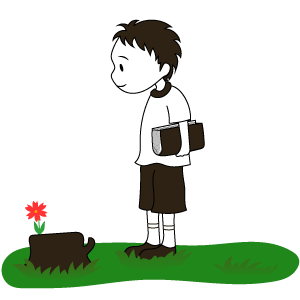Law and Literature Will Get Along
Many people think that the word “law” sounds stiff and difficult. When they hear the word “literature,” they may think it sounds soft and a bit pliable.
In particular, I think that people who love literature tend to dislike the idea of law. In the broad category of liberal arts and sciences, law and literature are both in the same liberal arts field, but they seem to be like water and oil, or like the two great men of the world that do not stand side by side.
I have been working with the law for a long time, so I have thought about the law in my own way. How does it relate to literature? Or rather, how to reconcile the two in my mind has been my theme for many years.
Are literature and law really enemies or allies, above or below? While one contains one side or the other, I wondered if there were any commonalities.
Law is memorization and theory. When a problem arises, the first step is to cite an article, establish a norm, and apply it to reach a conclusion. This is usually the procedure for solving a case.
In fact, the novel is basically structured in the same way, if I may be so bold. The protagonist creates a certain problem, tries to solve it with a certain standard (a sense of justice or mission), and then acts on it to reach a conclusion.
The difference is that while they use the same language, there are metaphors and allusions, and they don’t always come to a conclusion, but in other words, the law and the story actually have a similar structure.
Law, aside from settlement, must come to some kind of conclusion, no matter how difficult the problem may be. Literature, too, is a story, and if it does not end in a way that is satisfactory to the reader, it is no joke.
In this light, law and literature may be neither enemies nor allies, but more like identical twins within the humanities. Moreover, if philosophy is included, they may even be identical triplets (although there may be more).
As for the relationship between philosophy and literature, I will leave that for another time, but for now, I would say that philosophy is the eldest, literature the second, and law the third.
In fact, I think that these three brothers, rather than being at odds with each other, could be the best of brothers, like the famous episode of the three arrows of the Mori family, which kicked off the recent theory that humanities subjects are unnecessary.
I feel that it makes enough sense for those who want to do literature to also study law at least once, and for those who want to do law to also do literature (creative writing) at least once.
This is because those who decide to pursue (and live) literature tend to counter with fiction when hard realities come crashing down on them. Sometimes they can hide there quietly.
On the other hand, legal professionals fight in reality with the law, no matter how far they have to go. There is no escape. It is obvious which of the two is stronger in the real world.
In the world of law, the final outcome is a victory or defeat in court. There is invisible bloodshed. In some cases, it can be mind-numbing.
Fiction will not exhaust the mind. However, it is quite vulnerable to reality. That is why we can compensate for each other’s shortcomings.
The law is a scary thing, and depending on how it is used, it can be a weapon that can kill more easily than literature. But at the same time, it can also be a strong shield to protect you.
That is why I feel that the literary gentleness of the law is not to be used as a contradiction, but only to be held as a shield, so that one can grasp the truth in reality while protecting oneself, rather than just turning one’s back in fear of the threats of reality.
As a result, I believe we can solve various problems in a different way than the law can.
On the contrary, I would like legal professionals to do literature (creative writing), even if it is just a hobby or a single twist of a haiku. As I mentioned the other day, aside from suspense and courtroom dramas, we rarely see pure literature or children’s novels written by front-line legal professionals.
In my experience of working with many lawyers, I feel that they always hold the contradiction of the law in their right hand for 24 hours a day and have no play, like a driver in a car.
I feel that knowing the literature allows me to take a different approach to cases that may leak out of the legal norm.
This is not something that I am the first to think about, but I think it is a new and old issue besides, because in foreign countries, there is a respectable single academic field of study about the relationship between law and literature.
And apart from the relationship between literature and philosophy, I think that a hybrid of the two worlds of literature and law would help revitalize literature. So far, the hybrid world of medicine and literature (in a broad sense) has produced writers such as Mori Ogai, Watanabe Junichi, Kita Tofu, and Tezuka Osamu.
However, I am a little disappointed that Japan has yet to produce a literary writer or novelist with solid legal qualifications.
I feel that a pure literature writer (this definition aside) who is a legal practitioner could be a person who could create a world of new works in the future.
See you soon.












